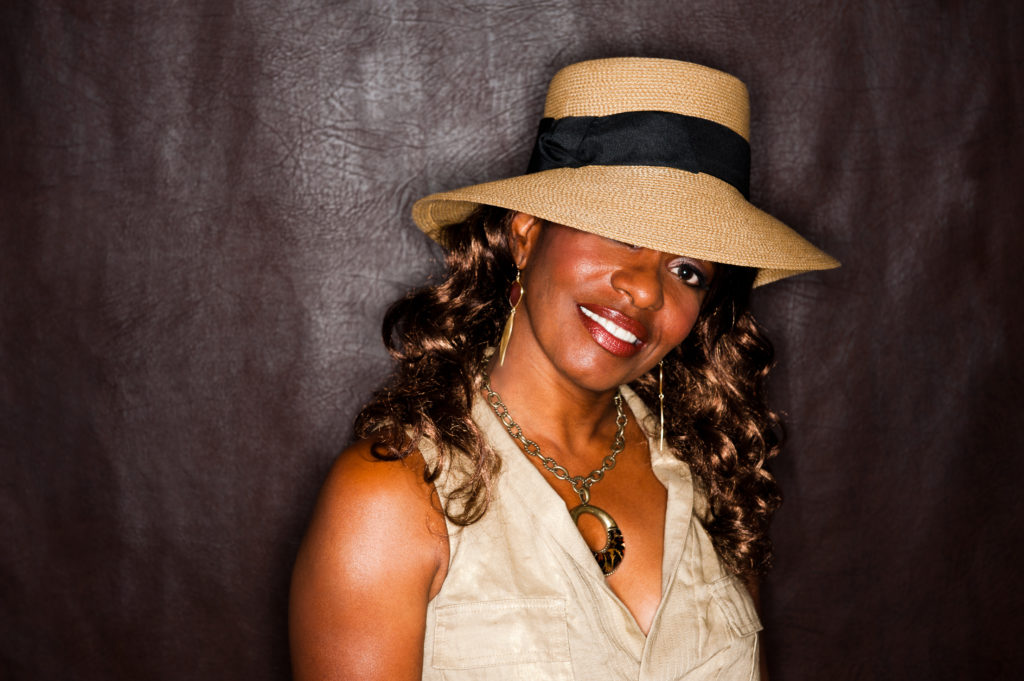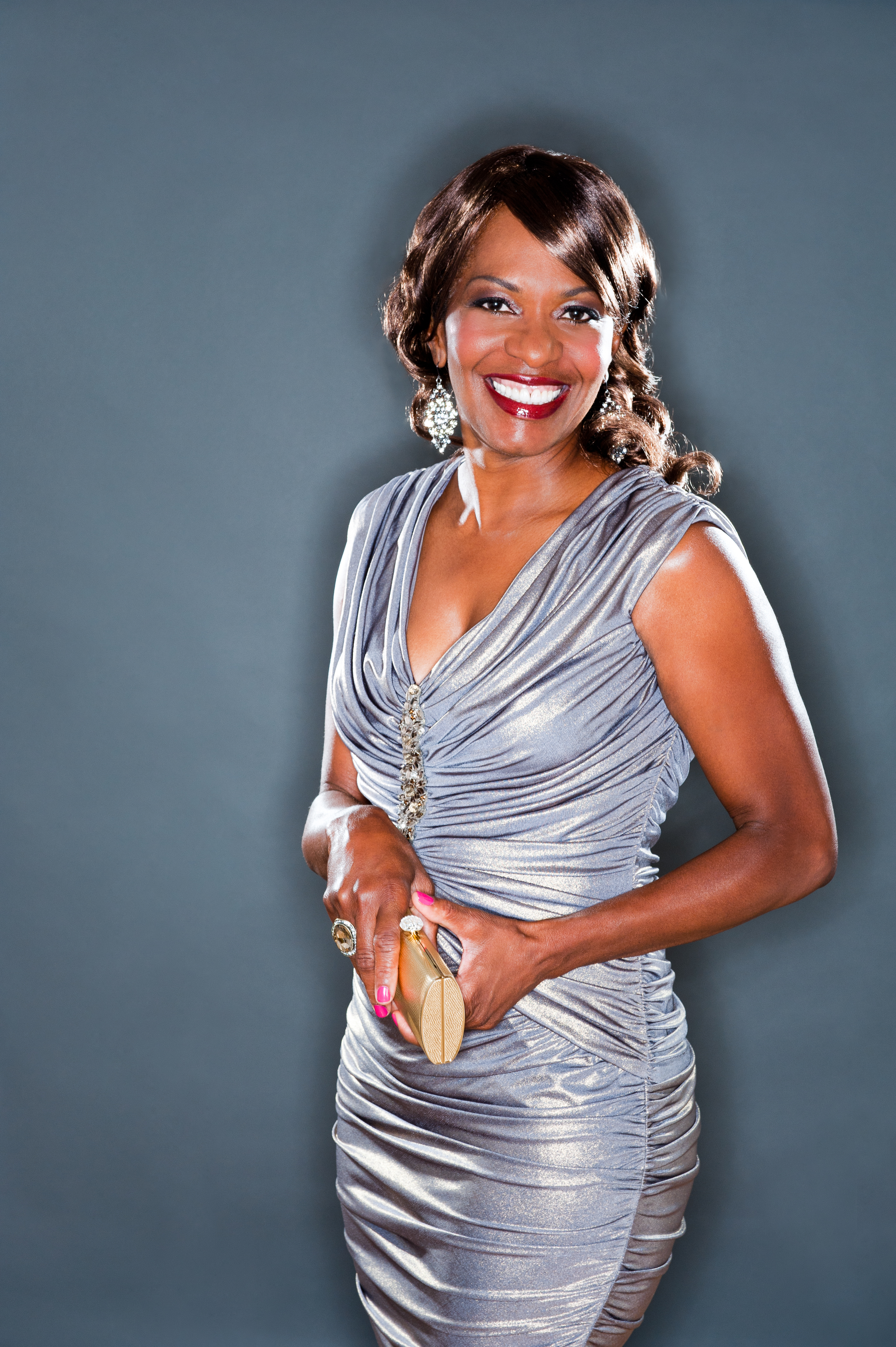By Julie Tereshchuk, Photography by Cory Ryan for Eye Candy Photography, Makeup by Jenny Lin, Hair by Margot Chang at Lakeline Mall

This is a difficult story to tell. Yet even more difficult for the woman who survived it are the certainties that her story is neither unique nor a thing of the past.
The first time Gigi Edwards Bryant was raped she was six years old. She was pregnant at 18 when she aged out of the Texas foster-care system. At 41, she watched her brother die from a lethal injection on death row. Charles had been 12 when, together with his three younger sisters, he’d entered the Texas foster-care system in 1964. The siblings were taken from their mother after she was arrested for killing a man, and separated. The next time Bryant saw Charles it was 1982 and he was in jail, headed for prison and a death sentence.
It’s taken years for Bryant to break her silence about the horrors of her life, and the foster system that failed to protect her. Many would rather not hear the story told — including her own sisters. Both have chosen not to maintain contact with her as adults.
“I can’t tell you how It felt when my older sIster told me I did not fit into her life and shared wIth me some of the awful things that haunted her from life in the system,” Bryant said. “She excluded her past and that included me.”
Despite this heartbreak, the memory of the children that did not survive the system drives Bryant to speak out and demand change. For Bryant is focused on the future. Not her traumatizing past. Not even her own future. Rather, the future of all the children in the care of the foster system.
She’s fought against being labeled as “resilient.” Only as she reviewed the word did she peel back the layers and fully realize the path her resilience has taken.
“Resilience is what you attain when you realize that silence is no longer an option,” Bryant said.

As a child, she escaped into her own world of silence, sustained by reading and writing. As she moved from home to home — a dizzying 20-plus homes in 12 years — her one constant was the Bible.
“I read for self-protection,” she said. “I realized evil people would not bother you while you were reading the Bible. So every time something happened, I’d just pick up the Bible.”
Out of that chillingly practical act grew a strong faith. It was reinforced by childhood visits to her great-grandmother.
“My Big Mama planted the seed with me,” Bryant recalled.
Yet, there were many people planting seeds of despair, telling her she’d never do anything with her life.
“… The only thing that I could possibly be was a prostitute — because I looked OK. Maybe it was call girl. I don’t remember. I don’t like to remember things that will pull me down,” she said, admitting she’d had her doubts. “I never thought I would live to be a healthy whole adult. I was afraid that all the things I was experiencing would get the best of me, even though I prayed really hard to keep it together.”
Amidst this darkness came the occasional light. While in the Corsicana State Home she befriended Billy Kennedy.
“They would pick me up from the orphanage on the weekends and I would stay at her house and hang out with her family. It was really cool,” she said, adding that those occasional glimpses of a different life gave Bryant a slim lifeline. “My whole life was just figuring out that I deserved better.”
Incredibly, she found her innate, inner-survivor strength.
“You can either live in the box that’s created around you, or you can stand on the box and use the experiences to get taller,” she explained.
“Resilience is what you attain when you realize that silence is no longer an option.”
As Bryant aged out of the system, she went to live with Big Mama. After she had her daughter, Bryant worked full time to put herself through college, one course at a time at Austin Community College before transferring to St. Edward’s University for her bachelor’s degree. (Years later, and again self-financed, Bryant earned an MBA in global leadership from the University of Texas at Dallas, graduating in December 2002.)
“I came out of the foster system with a lot of rage, like most of the children do. But I didn’t come out thinking anyone owed me anything,” she recalled.
Two abusive marriages followed, yet she never lost her resolve to make a better life and rise above her brutal past. These days, she’s a hugger.
“I tell people not to come over here unless you want a hug,” she said at her spacious Northwest Austin home. It’s a far cry from her days of choosing a job with computers at the Comptroller’s Office so she could spend all day writing and compiling programs rather than interacting with people. How did she make that change and become the warm, loving woman of today? “I had to learn to trust people.”
In February 2002, she found that trust. As a radiant bride she walked down the aisle at Mount Sinai Missionary Baptist Church of Austin with Sam Bryant at her side.
“I am so blessed to have Sam as my husband,” she said.
After 15 years in the information systems side of state government, Bryant opened her own business, focusing on business development, community outreach and employee engagement. Today, often together with Sam, she also devotes herself to myriad community organizations and nonprofits focused on education, drug-, alcohol- and foster children-related causes. In 2004, she started the Write To Me Foundation to provide youth in the foster system with computers and writing materials. Other programs of the WTMF include a nationwide Let’s Vote program, and The Prom Rack Project, which provides Travis County foster youth prom attire.
Bryant’s state-level service includes three appointments by Texas governors. Most recently, she was on the Texas Depart- ment of Family and Protective Services Council for four years when Governor Perry appointed her chairwoman in March 2010. Bryant is thought to be the first former foster child to lead the council in this volunteering despite it — not because of it. She asks: Why don’t we, as a society, do more to encourage children’s innate resilience? Why do we continue to provide obstacles, such as separating them from siblings, leaving them without any sense of heritage to draw from? Why do we focus on the labels that attach so easily to this 500,000-strong band of our nation’s youth who end up in the system because we have decided they should be in it for their own good, not because of any failing on their part? Why do we persist in defining them by their circumstances instead of providing them lifelines? Having broken the silence on her own past — risking prejudice and judgment from others — Bryant is bracing to raise her voice as far as Washington D.C. in her passionate fight for foster youth.

ON FAMILY
“Family is so special to me. … I brought a lot of love into mine because I never had it and I was so afraid that my kids would not know it. When children are taken away from their family, they need to know even though they are not with their biological families, that the modern family is the unit where love and trust exist. And it is probably going to be a village. I have chosen treasured friends to be my family support.”
ON SURVIVAL
“You can learn something from the naysayers as well as you can from the people who are going to encourage you.”
ON WHO I AM
“A person that realizes there’s potential in everyone, myself included. I’ve come through horrible circumstances but didn’t let them define me.”
ON WHAT’S TO BE DONE
“If we make an effort to take in the situation, we can make an impact. Had someone taken the time to look at me when I was younger, and to realize that I was always frightened, and that my eyes were always big, they would have known I was being harmed. Studies of children exiting the foster system show that 80 percent become homeless, 65 percent are unemployable, 80 percent will not attend college or finish high school, and 70 percent will experience the judicial system. … We must educate our strong, resilient children and teach them their disadvantages do not define them. We must educate society that disgrace, blame, failure and alienation do not crown the heads of the state’s children.”
ON HER GUIDING SCRIPTURE
Gigi Bryant says this Bible passage is “my testimony to learning to be content in every situation and remembering who holds my future.” “I rejoiced greatly in the Lord that at last you renewed your concern for me. Indeed, you were concerned, but you had no opportunity to show it. I am not saying this because I am in need, for I have learned to be content whatever the circumstances. I know what it is to be in need, and I know what it is to have plenty. I have learned the secret of being content in any and every situation, whether well-fed or hungry, whether living in plenty or in want.” – Philippians 4:10-12

